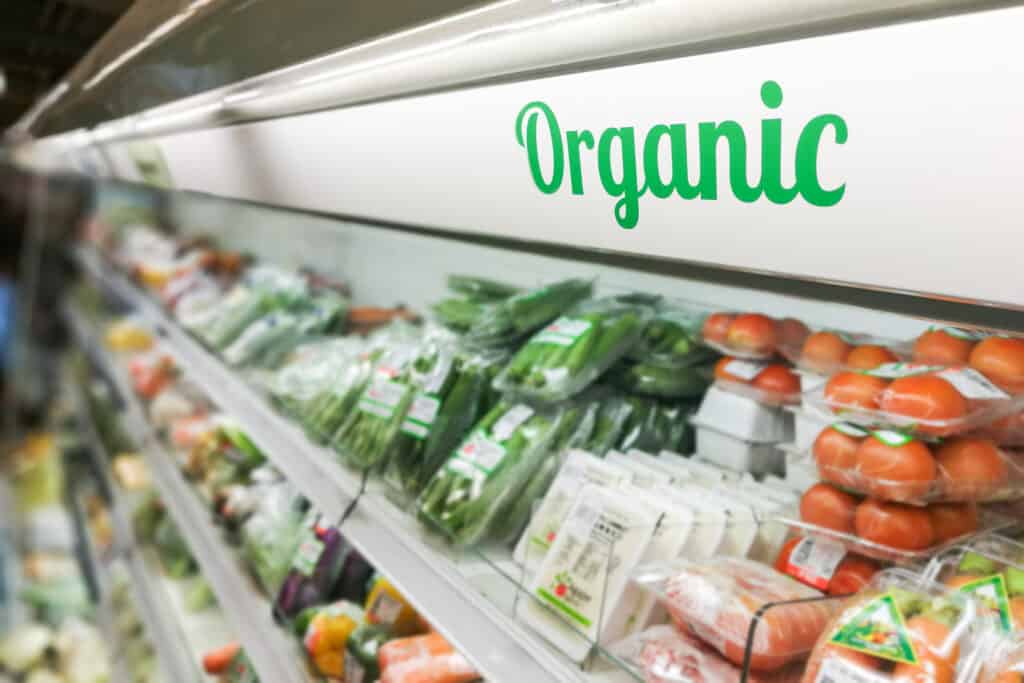Wow! They’re so expensive! Do I really need to buy organic? My post WHAT’S THE TRUTH ABOUT ORGANICS? is a good overview of questions you might have. My budget just can’t take it! Food is more expensive every day. In a perfect world, all food would be organic-that train left the station a long time ago, I’m sorry to say. It’s irritating that we have to pay more for food that do NOT have pesticides added, but that’s Big Ag for you. So what foods should I buy organic?
Are organics worth it?
Maybe you’re wondering if it’s really worth the extra money. Dr. Mark Hyman is a leading authority on lifestyle and chronic disease. He is the author of fourteen bestselling books and is the Head of Strategy and Innovation of the Cleveland Clinic Center for Functional Medicine. I have met him several times and have a number of his books. In “Food-What the Heck Should I Cook?”, he has a great section on the terms used to label food.
His comment about organics is this: “Many studies have linked organic vegetables to a decrease in negative effects from pesticides and have found that organic vegetables contain more nutrients and phytochemicals than conventional ones. Studies in adults and children have linked pesticide exposure to cancer, as well as respiratory problems, depression and even Parkinson’s disease.”
Dirty Dozen and Clean Fifteen lists help you decide what to buy organic
To be labeled “organic,” produce must meet USDA standards. It has to be grown on land where “prohibited substances” have not been used for three years. “But I can’t afford to buy all organic produce,” you say! I have great resource for you to help you prioritize your budget for organics. The Environmental Working Group, EWG, publishes two lists every year: “The Dirty Dozen” and the “Clean Fifteen.” “The Dirty Dozen” are the fruits and vegetables that are the most contaminated with agricultural chemicals. The “Clean Fifteen” are the least contaminated.
As a practical matter, if you eat a lot of a certain fruit or vegetable, it’s more important to consider how much pesticide you might be consuming. And the younger the child, the more likely it is that pesticides could have a negative effect. As a general rule, I shy away from produce grown in China or Central and South America unless it’s organic. If organics just are not in your budget, Consumer Reports has a handy guide for ways to minimize your exposure to pesticides in produce.
Washing pesticides off produce
I’ll say more about this in my post Can I Wash Pesticide Off Food? I don’t believe that washing with water is as effective as any other method in reducing pesticides in produce. From the research I’ve done on various methods, the most recommended way is to add a couple of teaspoons of baking soda to two cups of water and let the produce soak 15 minutes. This is from research out of the University of Massachusetts.
Other foods to buy organic you should buy organic
There are a couple other considerations for buying organic produce. One is where crops live in the soil. Crops that are grown in the ground, like potatoes, carrots and peanuts, tend to absorb the fungicides, herbicides and other chemicals in soil. This would also apply to anything made from these vegetables, like one of our favorites – peanut butter. Other vegetables can be concentrated in “processed food” we might buy. An example of this would be tomato products, like pasta sauces or ketchup.
The Dirty Dozen list refers only to produce. Because the further up the food chain you go, the more an animal consumes. This makes meat, dairy and eggs more worrisome foods. Again, if you eat a lot of one thing, like animal protein or crops grown in the ground, please consider buying organic. As Americans, we tend to eat a lot of dairy, like butter, yogurt, cheese and ice cream. According to Dr. Oz, non-organic dairy products may come from cows fed a diet of genetically modified corn and soy, and also given antibiotics.

